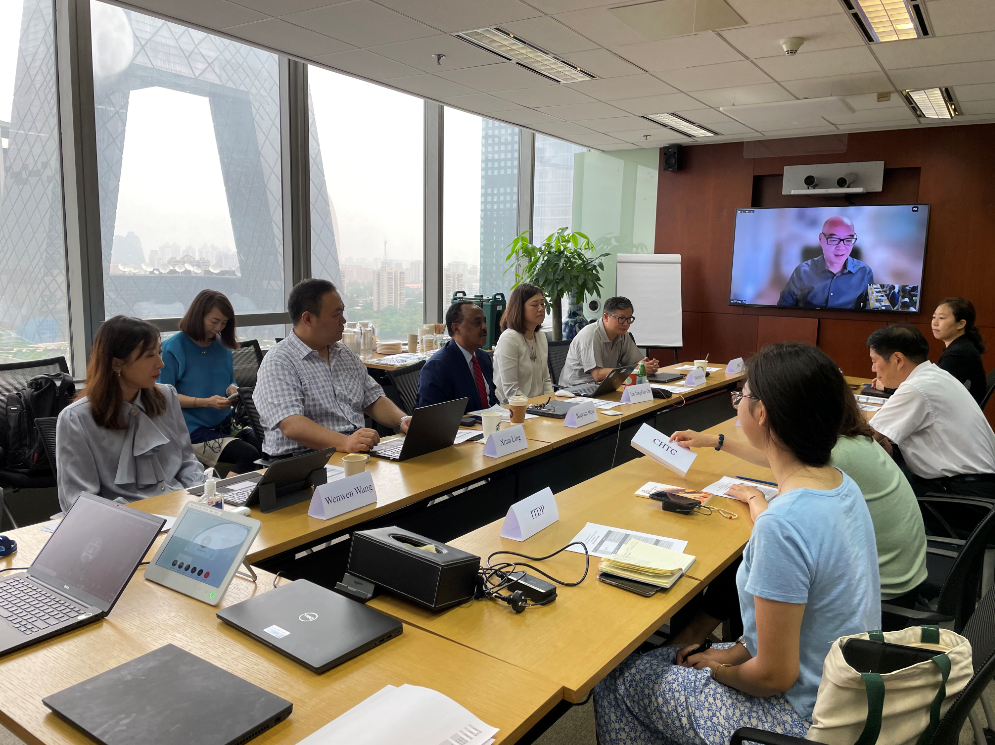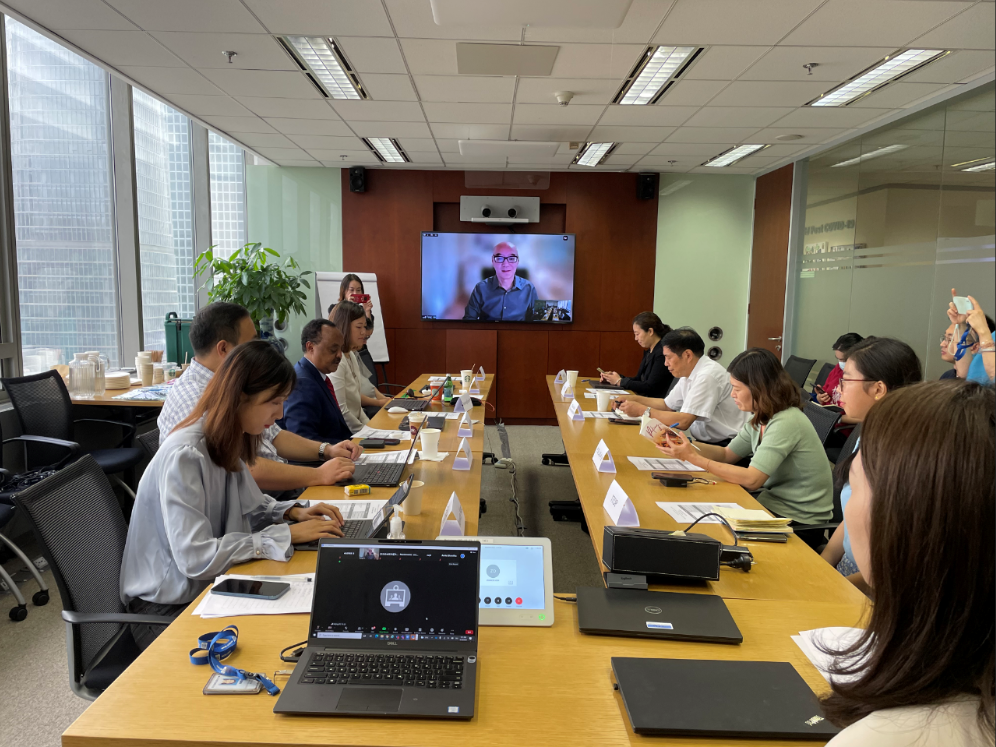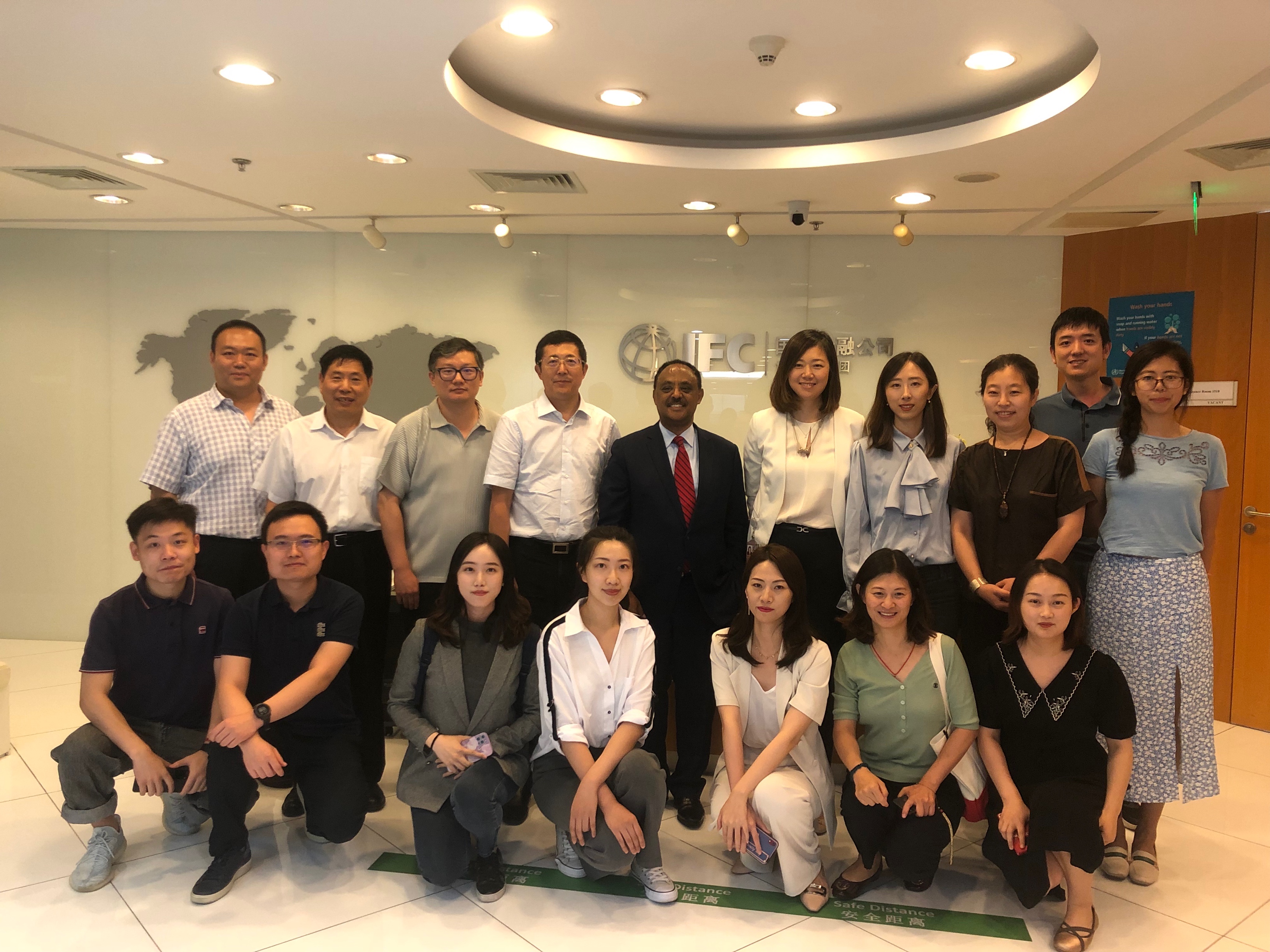|
On June 30, 2021, iCET and the World Bank Transportation
Global Practice Bureau successfully held the fifth “China E-Mobility Thematic
Salon: A Discussion on Carbon Neutralization of Transportation in City Clusters”
in Beijing. The series of salons, in the format of small-scale discussions and
seminars, focus on the electrification of Chinese transportation and
encompasses topics in electrification, artificial intelligence, network
connection, sharing and collaboration. This salon was both in-person and
virtual, primarily discussing China’s efforts in neutralizing carbon emissions
in urban transportation. More than 40 institutions, enterprises and media
partners participated in this salon, including the World Bank, iCET,
Germany Agency for International Cooperation (GIZ) , World Resources Institute,
California Air Resources Board (CARB), China Highway Association, China Local
Railway Association, Transportation and Development Policy Institute, China
Communication News, Caixin Media and so on.

The meeting was co-hosted by Mr. Binyam Reja, World Bank
Transportation Bureau’s Acting Director and Global Practice Manager, and Ms.
Jen JungEun Oh, World Bank Transportation Bureau’s Acting Deputy Director in
China, Mongolia and South Korea. At the opening, Mr. Reja and Dr. Feng An,
iCET’s Executive Director, introduced the original intention and history of
launching China’s E-mobility series and delivered welcome speeches to the
audience. Mr. Reja then delivered a speech titled “The World Bank’s (New)
Climate Action Plan,” stating that the World Bank will reduce emissions through
a series of programs, such as increasing climate financing and fundraising, to
strengthen developing countries’ ability to adapt and resist climate change,
and to put priority in and take action in areas of energy, farmland, urban
areas, and transportation.

Ms. Wenwen Wang, iCET's senior project manager, outlined the road
map of vehicle electrification in China’s Guangdong, Hong Kong, and Macao,
summarizing problems along the way. She analyzed the process, segmenting
sections of goal-setting, policy guidance and supervision, and innovation, to
provide policy recommendations for China's “14th Five-Year Plan.” Ms. Wang
stated that iCET will actively collaborate with partner institutions to carry
out research on the carbon-neutral path of the Guangdong-Hongkong-Macao Greater
Bay Area.
Ms. Sydnery Vergis, CARB's Director of Mobile Source Emission
Control Center, joined the salon virtually and introduced two implemented
policies. She cited regulations named
“California Advanced Clean Vehicles (II)” and “Advanced Clean Trucks”
that directly target heavy machinery, stating that California passenger cars,
non-road vehicles and construction equipment will achieve zero emissions by
2035. Heavy machinery and vehicles will also transition into zero-emission
models by 2045.
Ms. Jen JungEun Oh, World Bank Transportation Bureau’s Acting Deputy
Director in China, Mongolia and South Korea, delivered a speech titled “Low
Carbon Travel in Urban Agglomerations” and introduced the World Bank’s design
and implementation of a plan to help city clusters promote low-carbon and green
travel projects.
Dr. Xuan Ling, GIZ’s senior technical advisor, put forward the
Sino-German low-carbon transportation cooperation project and ongoing research
on applications of new energy vehicles in China’s urban environment, proposing
potential scenarios for new energy truck application and policy recommendations
for problems faced in pilot cities.Using Chengdu as a case study. Mr. Daizong Liu, World Resources Institute’s
Director of the China Sustainability Project, laid out the roadmap for
low-carbon development of China’s urban transportation. He then analyzed the
difficulties in measuring traffic emissions and proposed various solutions for
decarbonizing transportation.

The experts all expressed communal feelings of hoping to collaborate
in the future to reach the mutual goal in zero emissions in the transportation
field. The half-day salon-style seminar ended with heated discussions and
exchanges between potential partners.
|

